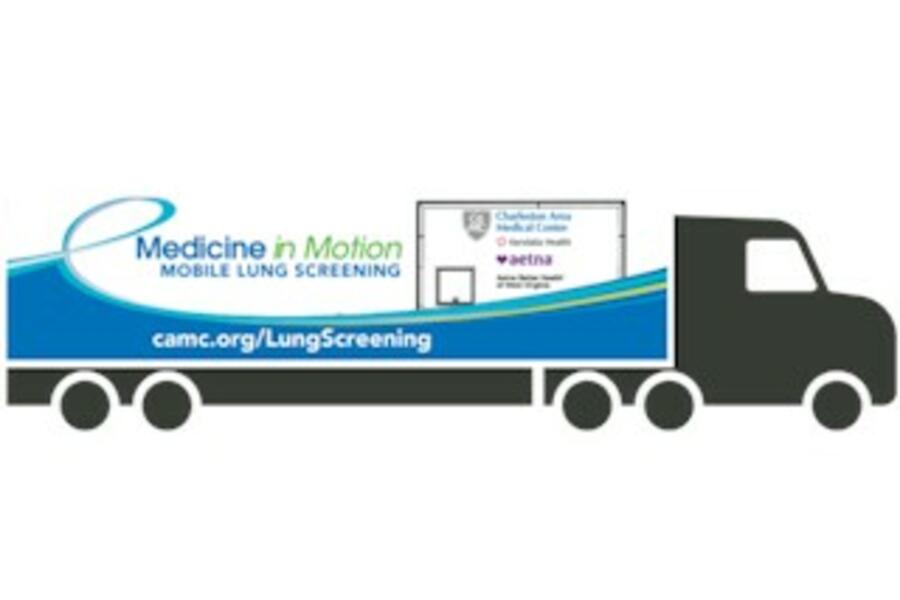If You Have Symptoms of Lung Cancer
Rapid Diagnostic Lung Cancer Screening Program
If your doctor suspects you may have lung cancer, CAMC’s rapid diagnostic program can help. The program significantly eases access to screenings by streamlining referrals. With quick access and our advanced imaging capabilities, you and your doctor get clear answers fast. If lung cancer is found, our board certified pulmonologists and thoracic surgeons are available for timely follow-up and evaluation.
We have the most precise imaging tests available, including:
- Chest x-ray
- Computed tomography (CT) scan
- Magnetic resonance imaging (MRI) scan
- Positron emission tomography (PET) scan
- Bone scan
If an imaging test shows there could be evidence of cancer, you’ll need a lung biopsy. To conduct a biopsy, surgeons will remove a small sample of tissue for testing using special tools and a microscope:
- Bronchoscopy
- Endobronchial ultrasound
- Fine-needle aspiration (FNA)
Some of these may require a referral, which we can help you obtain if you don’t already have one.
If cancer is confirmed, our multidisciplinary team immediately gets to work to determine your individual care plan.
If You Have a Lung Cancer Diagnosis
When deciding how to treat your lung cancer, doctors consider several factors including the type and stage of the cancer. Goals of treatment can be cure your cancer, control the spread or help ease problems caused by the cancer. Our lung cancer team will discuss your options with you so you are part of the decision.
Treatment options for lung cancer can be local or systemic. Local treatments, such as surgery and radiation, remove or destroy cancer cells in one specific area (e.g. lungs). Systemic treatment, like medications, chemotherapy and immunotherapy, destroy or control cancer cells that have traveled to other areas of the body. You may receive one or both types of treatments depending on your specific case.
Your lung cancer care team may include a thoracic surgeon, medical oncologist, radiation oncologist, genetic counselor and patient navigator, among others. Your team will help you through every step of the treatment process and make sure your care is coordinated and convenient.
Types of Lung Cancer We Treat
We provide comprehensive care for every type of lung cancer, including:
- Small cell lung cancer. Less common, this type of lung cancer may grow and spread faster than non-small cell cancer.
- Non-small cell lung cancer. Most lung cancers are non-small cell. There are a few different types, such as squamous cell carcinoma, adenocarcinoma, and large cell carcinoma.
- Squamous cell carcinoma. This type tends to start in the middle part of the lungs near the main airways (the bronchi).
- Adenocarcinoma. The most common type, this kind of lung cancer, tends to grow in the outer edges of the lungs. It usually grows more slowly than other types.
- Large cell carcinoma. This is the least common type and tends to quickly grow and spread to other organs. This can make it harder to treat.
What Sets Us Apart

Multidisciplinary Approach
The CAMC Lung Nodule Team meets twice a month to review lung screening cases that need immediate attention. The team consists of pulmonologists, cardiothoracic surgeons and lung cancer patient navigators. Together, the team determines the best course of action for each patient. In addition, the Thoracic Tumor Board meets every other week to present challenging cases for collaboration. The board includes medical oncologists, radiation oncologists, nurse navigators, radiologists and pathologists. This integrative medical treatment allows for more collaborative, comprehensive care for our patients.
Cutting Edge Treatments and Technology
CAMC is one of the first hospitals in the country to use an innovative new robotic technology to find and diagnose lung cancer sooner. Used to view the inside of the lungs and obtain a tissue sample for biopsy, the Monarch™ Platform from Auris Health could enable earlier and more-accurate diagnosis of small and hard-to-reach nodules in the periphery of the lung.

Lung Cancer Screening Program
The CAMC Lung Cancer Screening Program can help detect lung cancer early, when it is most treatable. Using low-dose CT screening, we can more easily spot cancer in its early stages. This allows patients to undergo minimally-invasive surgery and have less lung tissue removed.
A physician’s order is required for screening. Print our referral form and take it with you to your doctor's appointment to discuss eligibility requirements for the screening. For more information, please call (304) 388-2037.
Lung Cancer Care Locations
Talk with your doctor
Take a referral form with you to your doctor’s appointment to discuss eligibility requirements for the screening.



